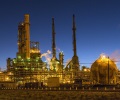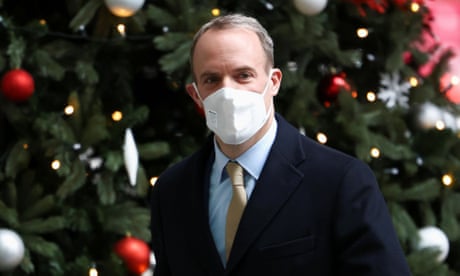
Greenpeace International (Amsterdam)
28 December 2021: Today the Grahamstown High Court in Makhanda ordered Shell to immediately cease its seismic blasting along South Africa's Wild Coast, while ordering Shell and the Minister of Mineral Resources and Energy to pay the costs of the application for the interim interdict.
Details of the judgement:
In granting the interdict sought by communities affected by the blasting and supporting civil society organisations, Judge Gerald Bloem said that Shell was under a duty to meaningfully consult with the communities and individuals who would be impacted by the seismic survey, and that based on the evidence provided, Shell failed to do so in the case of the applicant communities who hold customary rights, including fishing rights. They also hold a special spiritual and cultural connection to the ocean. It was thus crucial for Shell to consult these communities and understand how the survey may impact upon them. They did not. The judge found that the exploration right, which was awarded on the basis of a substantially flawed consultation process is thus unlawful and invalid. The applicants' right to meaningful consultation constitutes a prima facie right which deserves to be protected by way of an interim interdict.
On irreparable harm:
The applicants rely on cultural and spiritual harm; the threatened harm to marine life; and the negative impact on the livelihood of small-scale fishers, arising from the harm to marine life. In its answering affidavit, Shell elected not to deal with the aspect relating to the threat of harm to the applicant communities' cultural and spiritual beliefs, the applicants allegations in that regard are accordingly undisputed. The applicants also provided a massive body of expert evidence on the threat of harm to marine life, and this evidence establishes that, without intervention by the court, there is a real threat that the marine life would be irreparably harmed by the seismic survey. Against the acceptance of the body of expert evidence, Shell's denial that its activities will have an adverse impact on marine life cannot be sustained. The judge was satisfied that the applicants have established a reasonable apprehension of irreparable harm to marine life. In addition to the harm to marine life, the applicants have also established how the seismic survey will firstly, negatively impact on the livelihood of the fishers, and secondly, cause cultural and spiritual harm.
Costs:
Since the applicants were successful in obtaining the interim interdict, and because Minister Mantashe also opposed the application, the Minister and Shell are accordingly ordered to pay the applicants' costs.
Next steps:
Shell has been interdicted from undertaking seismic survey operations pending the finalisation of Part B of the application. A court will need to determine whether or not Shell requires an environmental authorisation obtained under NEMA, when part B of the application is dealt with at a date yet to be determined. The Applicants may also challenge the awarding of the exploration right based on the failed consultation. Shell may appeal the interim interdict, but it will not suspend the order at this stage.
Responses from applicants:
"The voices of the voiceless have been heard. The voices of the directly affected people have at last been heard, and the constitutional rights of indigenous people have been upheld.
This case reminds us that constitutional rights belong to the people and not to government, and that the only way that we can assure that the rights of indigenous people are living - and not just written on paper - is if we challenge government decisions that disregard these rights. This victory is hugely significant because we have made sure that the rights of indigenous communities are kept alive." - Sinegugu Zukulu, Sustaining the Wild Coast (SWC)
"Today's judgment marks one of the important milestones in our lifetime as people of not only Pondoland but South Africa, Africa and the world at large. We - the people - we took a stand in fighting against the BULLYING by Politicians, tenderpreneurs, the so called investors who undermine and threaten our livelihoods as ordinary people. The extraction of our natural resources is not a solution for so-called "poverty stricken communities" but a get rich quick scheme of those in power as well as financial control to the greedy Mafias of this world. We are living in borrowed time where money cannot buy their immunity; the mafias must be warned." - Nobuntu Mazeka, Sustaining the Wild Coast (SWC)
"This case is about making sure that profit making does not override human rights. It is about making sure that the voices of rural communities are as important as the voices of the elite. The case is not just about Shell - it is about both protecting human rights and animal rights which are both enshrined in the constitution. As coastal communities we have relied on the sea for centuries - and we are glad that the judge has recognised that our ocean livelihoods must not be sacrificed for short term profit." - Nonhle Mbuthuma, Amadiba Crisis Committee
"I feel impressed and very, very happy and proud that the court has listened to our voices - the people living on the coast. That for me is a big thing, because most of the time we feel that our government is not interested in listening to us - their people.
Also, winning in this court case means that we are not alone - the courts are with us in protecting our resources - which are the resources of the citizens of all South Africans. A decision against Shell is a decision to protect the ocean - which is ourselves. This is a decision for all citizens of South Africa - not just the residents of the coast. As residents of the coast it is our responsibility to give a shout so that everyone can hear what's going on around us. And then we work together to protect our resources for future generations so that they can live the life we are living today like our forefathers did. So this judgement is a big win for all of us - citizens and government - the whole of South Africa. I am so happy. Wow!"- Siyabonga Ndovela, Amadiba Crisis Committee
Responses from attorneys:
"The case has huge significance in that it shows that no matter how big a company is, it ignores local communities at its peril. This case is really a culmination of the struggle of communities along the Wild Coast for the recognition of their customary rights to land and fishing, and to respect for their customary processes. The Amadiba and Dwesa-Cwebe communities fought for such recognition in earlier cases, and the Makhanda High Court reminded the state and Shell today, once again, that the indigenous rights of communities are protected by the Constitution from interference, no matter how powerful the intruders are." Wilmien Wicomb, Legal Resources Centre.
South Africa: Shell Stopped! a Community's Generational Defence of Their Land, the Sea and Their Environment Must Be Protected By the Constitution
28 DECEMBER 2021
Daily Maverick (Johannesburg)
ANALYSIS
On Tuesday morning the Makhanda High Court issued an interim interdict preventing Shell from 'undertaking seismic survey operations under Exploration Right 12/3/252 pending the finalisation of Part B of the notice of motion'. Johan Lorenzen, an associate with Richard Spoor Attorneys, reflects on the significance of this morning's successful judgment in the application to interdict Shell from seismic blasting off the Wild Coast.
On Tuesday, the Makhanda High Court ruled in favour of several Wild Coast communities in our application to interdict (stop) Shell's seismic blasting of 6,011km2 of the resplendently beautiful Wild Coast.
History made.
But also, history continuing.
History in the making.
It has been a bit frustrating, honestly.
I kept trying to tell our clients - Nonhle Mbuthuma and Sinegugu Zukulu - how stressful it is to wait for the judgment.
And they kept calmly saying not to worry. That it doesn't matter whether we win or lose because either way, this is just a step in a long struggle.
Which is not what a lawyer wants to hear. I want to bloody win, dammit.
But, of course, they're right.
And their rightness - on this question, on the righteousness of their entire struggle for community-driven development...






 Diana Neslen: ‘The Labour party has no idea in my opinion of what antisemitism is.’
Diana Neslen: ‘The Labour party has no idea in my opinion of what antisemitism is.’
